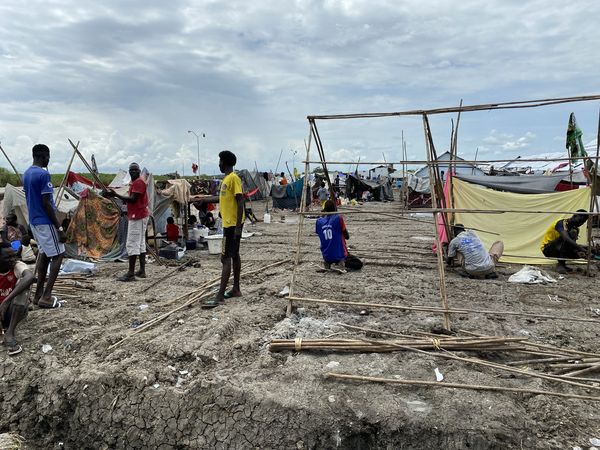On this day four years ago, the peace parties inked a deal to bring to an end the conflict that first broke out in 2013 and reignited in 2018, pushing the leaders to another round of negotiation which culminated in the 2018 peace accord in the Sudanese capital, Khartoum.
Last month, parties resolved to stay in power for another 24 months, until December 2024, when elections are expected to usher in a new government.
President Salva Kiir signed on behalf of the ruling party – SPLM-IG, Dr. Machar signed on behalf of SPLM-IO and Gabriel Changson Chang signed for the opposition coalition – SSOA.
On the other hand, Deng Alor Kuol signed for the Former Detainees, while Peter Mayen and Wilson Lodiong signed for the Other Political Parties.
In his concluding remarks, President Salva Kiir said the extension was to avoid a chaotic election.
Meanwhile, the First Vice President, Dr. Riek Machar said it took the government three years to implement roughly 27.3 percent of the 2018 peace accord.
According to Machar, 31.1 percent is a work in progress, and 41.4 percent is pending.
This leaves the principles of the peace deal with more than 70 percent of the provisions unimplemented.
The new timeline was however protested by the Troika countries, who expressed concerns over the exclusive process.
Diplomats from the US, UK, and Norway then boycotted the peace implementation roadmap meeting at the Freedom Hall, saying all relevant parties were consulted on the matter.
Today marks four years since the parties signed the revitalized peace agreement in the Ethiopian capital, Addis Ababa.
Speaking to Eye Radio this morning, the retired Bishop of the Episcopal Church of South Sudan, Enok Tombe described the peace implementation as “slow”.
He called on the unity government to demonstrate political will and implement the remaining tasks during the two-year extension.
“Regarding the implementation of the peace agreement, it is true it has been very slow. You know that the parties have now even extended for two years, what we are hoping is that this extension will give the parties more time to implement the remaining provisions, particularly the security arrangements, permanent constitution-making process, and then finally the elections.”
“In the end, these leaders came on their own, they imposed themselves politically, militarily, and economically. But, when we have the chance to vote, then you chose the leaders who really do what the people want.
“At the moment, what we see is that the political parties are in their own interest that’s why the violence is even at the communal level. But, all the same, we pray that God will be with us until the time of elections.”
The new peace roadmap assessed the implementation status of the provisions of each chapter, identifying provisions that are either completed, in progress, or outstanding.
The articles in progress or outstanding were recorded and tabulated with implementation time frames, their start and finish dates to provide a schedule for the implementation.
The objective, according to the committee, is to ensure a peaceful end of the interim period, with elections held and a democratically elected government for the Republic of South Sudan installed.
There are critical tasks in the agreement that are supposed to be implemented before the end of the transitional period to pave way for credible, free, and fair elections.
This includes the unification of forces and their deployment, the making of a permanent constitution, and the reconstitution of the electoral commission, among others.

